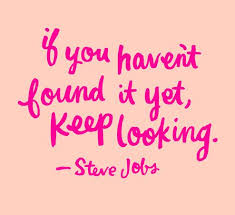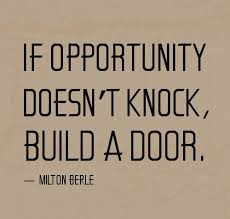I still remember how I felt when unemployed from January 15, 2009, to late July, 2010. I lost of part of my self-identity as a marketing writer, missing having a pace to go and things to do, and I left isolated and alone. German researchers Fieseler, Meckel, and Müller (2014) seem to understand and genuinely empathize with the unemployed while offering conclusions that reflect my own experience.

With the cooperation of the German Federal Employment Agency, Fieseler et al. selected 14,000 unemployed people from the national database, and they interviewed 2,414 of them by telephone from February to March 2012. Of those selected:
- Half were men, and half were women.
- One third of participants were 18 to 25, 26 to 50, and 51 to 65 years old.
- Most were high school graduates who didn’t attend or have access to higher education.
- Their residences were half rural and half urban.

Fieseler et al. examined the effect of online support toward their perceptions of self-worth in the job-search process. They based their 2012 conclusions on 1,322 of the 2,414 participants who completed the entire questionnaire and could access the Internet. The researchers defined enabling online support as online advice, suggestions for contacts, help finding online job postings, and references needed for job offers. They examined the effect of enabling online support to achieving job-search self-efficacy (think each job hunter’s self-worth). Each item on the questionnaire, which was finalized with feedback from a pilot, got rated on a five-point Likert scale (1, applies to all, to 5, does not apply at all).

From this research, we can learn:
- Getting online support tends to be less important for younger job-seekers’ self-efficacy than for older people, especially those who are middle aged and those who lack experience looking online for work. This makes sense, Fieseler et al. concluded; job-hunters with more experience with the Internet need less online support resources.
- “Thus, for active job search behaviour, high self-efficacy is more important for women, younger people, less experienced users, and respondents with a negative attitude towards the Internet than for men, older and middle-aged people aged 26 to 50, more experienced users, and respondents with a positive attitude towards the Internet” (p. 170).
- Higher job-search self-efficacy equates to a more active (and presumably more productive) online searches.
- Age helps determine what job-seekers need to achieve higher self-efficacy, which presumably leads to more productive job hunts and faster job offers. Self-efficacy was most important to the youngest group of participants, while enabling support to achieve self-efficacy was most important to middle-aged people 26 to 50 years.
- One can connect these findings to other studies (Kuhn & Montour, 2014) and logically conclude that people who are more active in the online job search process with access to support from an Internet-connected network and a reasonably positive attitude about the process will find work faster.
Fieseler et al. also posited that unemployed people might fill their time otherwise at work with social media instead. However, they wondered if job-seekers would openly advertise this status, noting, “unemployed individuals tend to be rather unwilling to openly express that they are jobless. Although individuals might share their feelings with close friends or family for emotional support, the topic is paradoxically excluded from the context of the job search” (p. 172). This area of interest, as well as the possibility that online job-hunters might create online personas and impressions to enhance their image to hiring managers, could be interesting avenues for future research.
(This article reflects only the opinion of the author.)
Fieseler, C., Meckel, M., & Müller, S. (2014). With a little help of my peers. The supportive role of online contacts for the unemployed. Computers in Human Behavior, 41, 164-176. doi:10.1016/j.chb.2014.09.017
